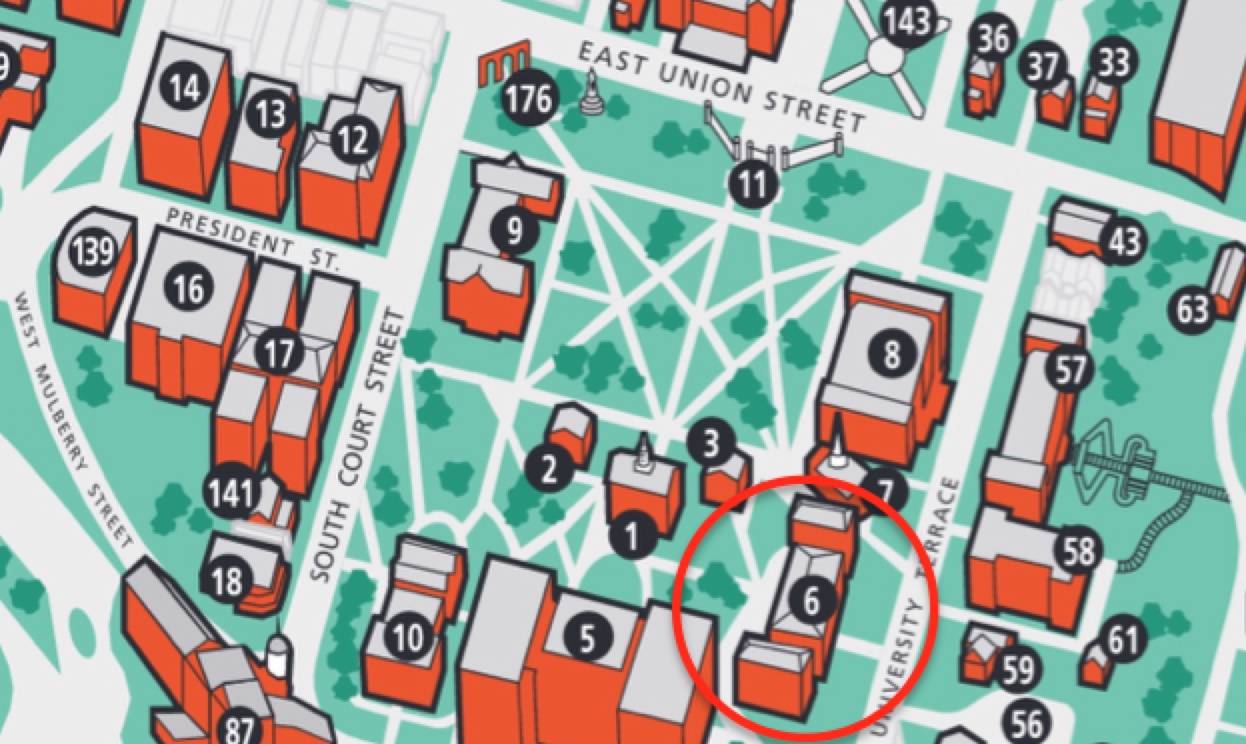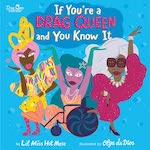|
ENG 7340
Dr. Edmond Y. Chang Download the course policies and syllabus (PDF).
“I want to be firm that the idea of the traditional itself is highly constructed and highly ideological. This version is
one among many. There is no original, only endless multiple trails that point into the past. We can never grasp that past.
These stories are always about the present.”
|
IN 1979, JAMES BALDWIN said, “You write in order to change the world, knowing perfectly well that you probably can’t, but also knowing that literature is indispensable to the world…and if you alter, even by a millimeter, the way a person looks or people look at reality, then you can change it.” This graduate course engages this work of incremental change and imagination through the intersections of 20/21C American literature and theory, genre and form, as well as history, geography, and popular culture to address the representations and politics of different identities, embodiments, and desires. We will put a range of texts into conversation from more “traditional” or “realist” texts to alternative, speculative, even radical texts, foregrounding queer(er) writers, artists, and theorists of color, to understand how they critique and challenge heteronormativity, white supremacy, and other forms of oppression. Texts may include Sherwood Anderson, F. Scott Fitzgerald, Nella Larsen, Tennessee Williams, James Baldwin, Theresa Hak Kyung Cha, Don DeLillo, Toni Morrison, Gloria Anzaldúa, Sherman Alexie, Joshua Whitehead, Octavia Butler, Jeremy O. Harris, and Carmen Machado. A REQUIREMENT for this class is a well-developed curiosity about the world, about the culture we live in, and about the cultural productions we imagine, produce, and consume. In other words, this class is about reading, critiquing, and analyzing our culture through different literatures and texts. We will engage different practices enjoying and analyzing literature and other media, as well as develop literary, feminist, queer, and intersectional strategies, habits, and perspectives of reading, thinking, and writing. Foremost, hopefully, we will read, research, and write with pleasure and for pleasure. We will also close read for analysis. And lastly, we will read and deploy literature as theory, as dramatizing the concerns, wonders, struggles, and politics of lived life and experience. SPECIFICALLY, our course goals and learning objectives include (these are the formal ENG 7340 outcomes):
• Students will be able to describe, analyze, and theorize the characteristics of significant genres and authors of 20/21C American Literature using critical and theoretical terminology. IN OTHER WORDS, we will use literature, other mediums, and popular culture as vernacular theory to think, talk, write about and to interrogate the world around us. We will spend the quarter asking and addressing difficult, challenging, and sometimes discomforting ideas, questions, and topics, focusing on different identities, bodies, histories, desires, experiences, and even struggles and violences. Whether on the page, screen, on campus, or in the community, we will explore and engage multiple perspectives, levels of familiarity with the material, and heady and heartfelt responses. In other words, our class will be a safe, respectful, but not necessarily comfortable space. While pushing boundaries and comfort zones are essential to critical thinking, making connections, and intellectual and personal freedom, see me with concerns and queries, for reasonable accommodations, and for further resources on campus. |
"Do work that matters. Vale la pena."
Required Course Texts & Materials
• Fitzgerald, F. Scott. The Great Gatsby.
|
|
Course Requirements
Presentations (20%) Download the course policies and syllabus (PDF).
|
Requirements & GradingYour grade should not be the sole exigence or motivation for this class. It is the hope of the course that you walk away from our class with something more. Find some pleasure and some edification and some knowledge from this class (or any class really) and success is usually not far behind. With that in mind, your grade will be a reflection of engagement, effort, close reading, critical thinking, writing, and participation. Critical Question Presentation and Roundtable (20%) You will be a required to sign up twice for an oral presentation during the semester. For your presentation, you will read the texts assigned for a particular week, summarize and articulate main points from the week’s scholarly and literary texts, generate a critical question or two connecting the theory to the text, and substantively contribute to in-class and online discussion for the week. Critical Response Papers (20%) Over the course of the semester, you will complete a number short, critical, analytical response papers. These single-spaced, one-page writings serve as close readings of, analyses of, and articulations of the texts and connections you see, read, and talk about in the tutorial. These responses are more than just summaries or personal reactions and will be graded on clarity, focus, coherence, critique, and your ability to concisely formulate arguments. You will be required to generate a response paper approximately every other week for a total of 7. See the response paper prompt for more details. Annotated Bibliography (10%) You will develop and maintain an annotated bibliography of all of the main literary, scholarly, and secondary sources and texts read for the class. These sources will tie directly into the preparation for and development of your Final Project but will also be good practice for PhD comprehensive exams, MA and dissertation projects, and future research and publications. Research Proposal Memo (10%) As part of your Final Project research and writing process, you must generate a 1-page research proposal in business memo format. You will also arrange for a conference with me to go over your proposal. Proposals will be graded for clarity, detail, completion, and manuscript format. Your proposal and conference must be completed at least 4 weeks prior to the end of the semester. Final Paper/Project (20%) By the end of the semester, you will complete a Final Paper/Project that integrates what you have read, explored, and written about, that draws on specific terms, concepts, or issues from our discussions, and that engages the theoretical perspectives and practices of the course. The project asks you to make connections and to create an argument across different kinds of evidence and added research. Your project can be a traditional research paper, a media production (which includes a substantive analytical component), or a hybrid of the two. Ideally, you will develop a project with the goal of publication (for a short-form journal or website), presentation at a conference (including abstract for submission), or production (such as a multimodal text). Participation and Preparedness (20%) Preparedness and participation form a large component of your final grade. It is essential that you prepare, attend, and participate in class. Missing class may seriously compromise your ability to do well in this class. Moreover, negative participation will hurt your participation grade. Participation is determined by 1) your respectful presence in class and interactions with me and others, 2) your willingness to discuss, comment, and ask questions, 3) your preparation for class, which includes having the required materials and doing all of the assigned reading or work for class, 4) your engagement and collaboration in group work, presentations, office hours, and course events, and 5) your completion of all required threads, other weekly posts, and overall care and use of the class Blackboard or "Bb"--bookmark the address, check and respond regularly, and think of the blog as an extension of class: https://blackboard.ohio.edu/ultra/courses/_632338_1/cl/outline |
"When I look back, I am so impressed again with the life-giving power of literature. If I were a young person
today, trying to gain a sense of myself in the world, I would do that again by reading, just as I did when I was young."
“Authors do not supply imaginations, they expect their readers to have their own, and to use it.”
|
|
|
AttendanceThis is not a self-paced course. Attendance is required. If you are absent, you miss the explanation of an assignment, the discussion of a reading, the chance to participate, and overall, the class as a community of learning. Also, you are expected to be in class on time. Chronic or conspicuous attendance or tardiness problems will negatively affect your overall participation grade.
Moreover, absences for more than 3 class sessions may result in a failing grade regardless of reason.
University-sanctioned and reasonable accommodations will be taken into account. All absences are your
responsibility. If you know you are going to miss class, please let me know (via email) as soon as
possible and make any necessary arrangements. When you do miss class, always find another student to get
class notes or see me during office hours to discuss or make up missed work in a timely manner. You are
always responsible for all material covered during your absence.
|
|
|
Response Paper Formatting 1) 1” margins top, bottom, left, and right on each page. 2) Single-spaced block header with your name, date, course, my name. For example:
Student Name 3) Response (week) number and title (e.g. Week #2: Race in The Great Gatsby). 4) Response papers are single-spaced, standard indented paragraphing, no page numbers. 5) Standard Times Roman Font, 12 point only. 6) Correct MLA citation and bibliographic format. Bibliography if necessary (not needed for class texts).
|
Assignment FormatAll papers must be produced on a word processor. All documents should be saved in Microsoft Word format (or if necessary as a PDF). All papers must follow the manuscript format outlined by the assignment. Unless instructed otherwise, all papers must use MLA citation and documentation conventions. All papers must be neatly printed (in black), single-sided, stapled in the top, left-hand corner if necessary, and not be three-hole punched. Papers that do not follow these format guidelines will not be accepted. They will be returned unread to you. Papers will be regarded as late until they are resubmitted in the proper format. Always make a backup copy of every paper you turn in, lest you be one of the unhappy people whose paper is eaten by the computer. You may even want to take the precaution of e-mailing your paper to yourself as an attachment during the drafting process and certainly before you exit the document and leave the computer. Or you may want to invest in cloud-based file storage like OneDrive (which all OU students have already have access) or DropBox.
Evaluation RubricOver the course of the semester, your assignments will receive feedback and comments that will identify what you are doing well and what still needs improvement. Your grades assess your fulfillment of the assignment, the quality of work, detail, analysis, and argumentation, overall effort, and finally, style, polish, and risk taking. Consider the following evaluation rubric as signposts or a kind of legend to your progress and evaluation:
• Outstanding (A/A+): Offers a very highly proficient, even memorable demonstration
of the trait(s) associated with the course or assignment goal(s), including some
appropriate risk-taking and/or creativity. |
Late Assignments All assignments must be done completely and turned in on time. Late assignments will be penalized a letter grade for every day that they are late. So, if your essay is late by one day and you received a B- for your work, then your final grade would be a C-. Moreover, I will not comment on late work. However, you still need to complete late work or you will receive a zero. If you miss the due date of a paper, you must notify me and make arrangements to get the paper to me as soon as possible. Unless previously arranged, I DO NOT accept assignments via email. Remember that a paper has not been officially handed in until it is in my hands. Never turning anything in late is always the best policy. |
|
Contact Dr. Chang
Office: Download the course policies and syllabus.
|
Finding HelpMy office and office hours are listed in the left sidebar. I am available during that time or by appointment (which can be held virtually). I encourage you to come see me early in the quarter even if it is just to talk about the class, about the assignments, or about school in general. I may ask you to meet with me when I think a conference would be useful. My office is located on the third floor of Ellis Hall (east of Alden Library), Room 331.

Email is the best way to contact me. I will do my best to answer your emails and Bb posts, usually within twenty-four hours. If there is an emergency and you need to reach me, please contact the main English office in 201 Ellis Hall. Furthermore, when time permits, I will supplement my office hours with virtual hours via Google Chat (nickname: EDagogy); if I am logged in, during reasonable hours, you are more than welcome to discuss the class or ask questions. Please, when you initiate an IM conversation, please say hello and identify yourself to me; also, be patient because my responses may not be immediate. You can also find additional writing and academic help at the Writing Commons on campus, which includes graduate student resources. The Writing Commons is located in the Academic Advancement Center (AAC) on the second floor of Alden Library and offers a variety of services including help with reading, writing, brainstorming ideas, organization, citation, and research. See https://www.ohio.edu/university-college/academic-achievement-center to make an appointment and for more information.
Further resources, both on- and off-campus can be found on the Links page of the course website:
http://www.edmondchang.com/courses/7340/links.html.
|
Learning (With) Technology Unless you have an official accommodation, the use of technology in our classroom is a privilege, not a right. Mobile devices like phones, media players, and cameras should be off and put away. Computers and tablets should be used for note-taking, in-class work, and readings only. Print is generally preferred for course texts and readings, but full-size e-versions are acceptable provided the student is able to readily highlight, annotate, and index. Finally, be conscientious and respectful in the use of the course website and social media and post no material from class to the internet or non-class sites without explicit permission from the instructor and the class. Keep in mind these three rules:
1) Use the Right Tool for the situation and the task—keep it simple and elegant,
Inappropriate use and abuse of technology in class will result in the taking away of technology privileges for the offending student and/or class as a whole. |
|
|
AccommodationsAny student who feels they may need an accommodation based on the impact of a disability should see me or contact me in the first week of class to discuss their specific needs and provide written documentation from Student Accessibility Services. If you are not yet registered as a student with a disability, please contact Accessibility Services at 740-593-2620 or visit the Accessibility Services office in Alden Library 230. The OU Accessibility Services website is: https://www.ohio.edu/accessibility.
Academic DishonestyAll students are required to uphold the highest academic standards. Plagiarism, or academic dishonesty, is presenting someone else's ideas or writing as your own. In your writing for this class, you are encouraged to refer to other people's thoughts and writing--as long as you cite them. Many students do not have a clear understanding of what constitutes plagiarism, so feel free to ask questions at any time. For our class, plagiarism includes:
• a student failing to cite sources of ideas If you have any doubt about how to cite or acknowledge another's writing, please talk to me. Any plagiarism or academic dishonesty will result in failure of an assignment or of this course, and the Office of Community Standards and Student Responsibility may impose additional sanctions. It is always better to be safe than sorry. Please review the Ohio University's Academic Misconduct page at https://www.ohio.edu/communitystandards/academic/students.cfm
Harassment, Discrimination, and Sexual Misconduct
Ohio University and this course are committed to a safe, supportive, and inclusive learning environment.
Title IX makes clear that violence and harassment based on sex and gender is a Civil Rights offense
subject to the same kinds of accountability and support applied to offenses against other protected
categories such as race, national origin, and so on. As your instructor, I am a mandatory reporter
and am required by law to share with the University any information regarding sexual misconduct or
information about a crime that may have occurred on campus. For more information about policies
and resources or confidential reporting options, see the Office of University Equity and Civil
Rights Compliance:
https://www.ohio.edu/equity-civil-rights/
or the Division of Student Affairs
page on Student Conduct & Community Standards:
https://www.ohio.edu/student-affairs/community-standards.
|
“Find freedom in the context you inherit.”
“In a time of destruction, create something.”
"When I read great literature, great drama, speeches, or sermons, I feel that the human mind has not achieved
anything greater than the ability to share feelings and thoughts through language."
|
|
|
© 2023-24 Edmond Chang. All original material. All rights reserved. Contact the webmaster of this site. These pages are best viewed with Mozilla Firefox or Google Chrome. Open your browser to the largest viewable area. These pages are hosted by ED(MOND)CHANG(ED)AGOGY, the academic, professional, and creative website of Edmond Y. Chang. |
|

















